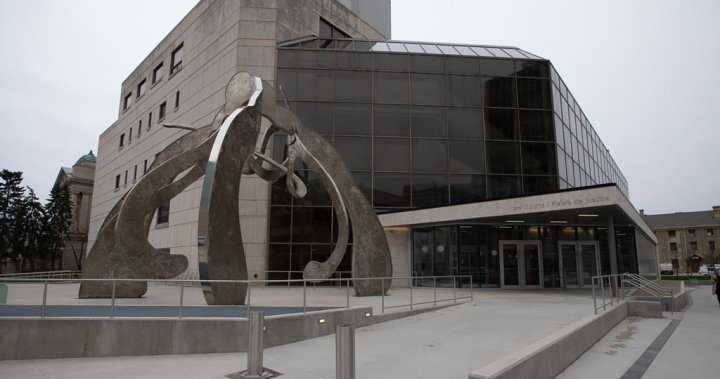Paragraph 1: The Shocking Turn of Events
The trial of Josh Benoit, accused of the first-degree murder of 20-year-old Indigenous woman Mackaylah Gerard-Roussin, has been abruptly halted due to an unexpected turn of events. The trial, scheduled for December 9-20, 2023, was anticipated to commence with a guilty plea from Benoit. However, in a dramatic courtroom twist, Benoit reversed his decision, announcing his intention to plead not guilty. This sudden change shocked the court, sparking emotional outbursts and leading to a brief adjournment.
Paragraph 2: The Victim and the Crime
Mackaylah Gerard-Roussin, a 20-year-old Indigenous woman, was tragically found dead on a remote ATV trail in southeast Manitoba in August 2022. Her death prompted a homicide investigation, ultimately leading to the arrest and charging of Josh Benoit with first-degree murder. The details surrounding the circumstances of her death and the evidence against Benoit remain undisclosed, pending the future proceedings of the trial. The case highlights the ongoing issue of violence against Indigenous women in Canada, a systemic problem that demands continued attention and action.
Paragraph 3: The Legal Proceedings and Delay
Following the unexpected shift in Benoit’s plea, the judge adjourned the proceedings and set a new court date for January 8, 2024, in Assignment Court. This specific court is designated for cases where the next steps are unclear or require further scheduling. The delay is primarily attributed to Benoit’s decision to part ways with his defense lawyer, Andrew Synyshyn. The judge granted Benoit one month to secure new legal representation, recognizing the importance of adequate defense counsel in ensuring a fair trial.
Paragraph 4: Implications of the Plea Change
Benoit’s change of plea from guilty to not guilty significantly alters the trajectory of the case. A guilty plea would have likely led to a swift sentencing hearing, focusing on the determination of a suitable punishment. Conversely, a not guilty plea necessitates a full trial, requiring the presentation of evidence, examination of witnesses, and arguments from both the prosecution and the defense. This process can be lengthy and complex, potentially involving numerous court appearances and legal maneuvers. The change also introduces uncertainty about the ultimate outcome, with the possibility of an acquittal or conviction on a lesser charge.
Paragraph 5: Impact on the Victim’s Family and Community
The unexpected delay and emotional turmoil of the courtroom proceedings undoubtedly inflict further pain on Mackaylah Gerard-Roussin’s family and community. The anticipation of a guilty plea and a potential sense of closure were abruptly shattered, leaving them to grapple with the prospect of a prolonged and arduous legal battle. The case underscores the need for support systems and resources for families of victims of violent crime, particularly within Indigenous communities where systemic inequalities often exacerbate the impacts of such tragedies.
Paragraph 6: The Path Ahead
The January 8th court date will likely focus on Benoit’s securing of new legal representation and the scheduling of future proceedings. The court will need to determine a timeline for pre-trial motions, discovery processes, and ultimately, the trial itself. The case will likely garner significant public attention, given the serious nature of the charge, the initial anticipation of a guilty plea, and the broader context of violence against Indigenous women in Canada. The legal journey ahead promises to be complex and emotionally charged, with the pursuit of justice for Mackaylah Gerard-Roussin at its center.

